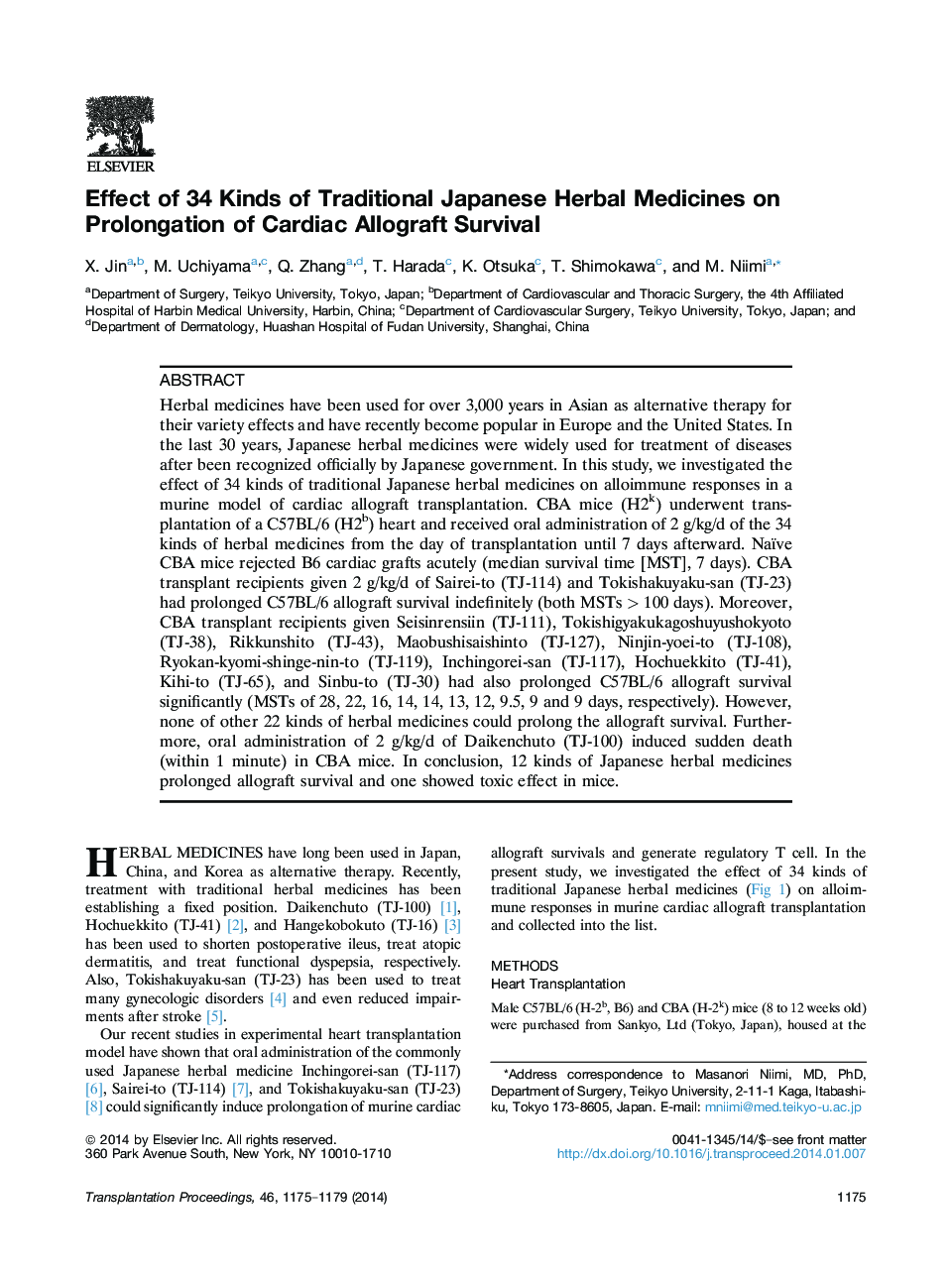| کد مقاله | کد نشریه | سال انتشار | مقاله انگلیسی | نسخه تمام متن |
|---|---|---|---|---|
| 4256706 | 1284528 | 2014 | 5 صفحه PDF | دانلود رایگان |
Herbal medicines have been used for over 3,000 years in Asian as alternative therapy for their variety effects and have recently become popular in Europe and the United States. In the last 30 years, Japanese herbal medicines were widely used for treatment of diseases after been recognized officially by Japanese government. In this study, we investigated the effect of 34 kinds of traditional Japanese herbal medicines on alloimmune responses in a murine model of cardiac allograft transplantation. CBA mice (H2k) underwent transplantation of a C57BL/6 (H2b) heart and received oral administration of 2 g/kg/d of the 34 kinds of herbal medicines from the day of transplantation until 7 days afterward. Naïve CBA mice rejected B6 cardiac grafts acutely (median survival time [MST], 7 days). CBA transplant recipients given 2 g/kg/d of Sairei-to (TJ-114) and Tokishakuyaku-san (TJ-23) had prolonged C57BL/6 allograft survival indefinitely (both MSTs > 100 days). Moreover, CBA transplant recipients given Seisinrensiin (TJ-111), Tokishigyakukagoshuyushokyoto (TJ-38), Rikkunshito (TJ-43), Maobushisaishinto (TJ-127), Ninjin-yoei-to (TJ-108), Ryokan-kyomi-shinge-nin-to (TJ-119), Inchingorei-san (TJ-117), Hochuekkito (TJ-41), Kihi-to (TJ-65), and Sinbu-to (TJ-30) had also prolonged C57BL/6 allograft survival significantly (MSTs of 28, 22, 16, 14, 14, 13, 12, 9.5, 9 and 9 days, respectively). However, none of other 22 kinds of herbal medicines could prolong the allograft survival. Furthermore, oral administration of 2 g/kg/d of Daikenchuto (TJ-100) induced sudden death (within 1 minute) in CBA mice. In conclusion, 12 kinds of Japanese herbal medicines prolonged allograft survival and one showed toxic effect in mice.
Journal: Transplantation Proceedings - Volume 46, Issue 4, May 2014, Pages 1175–1179
